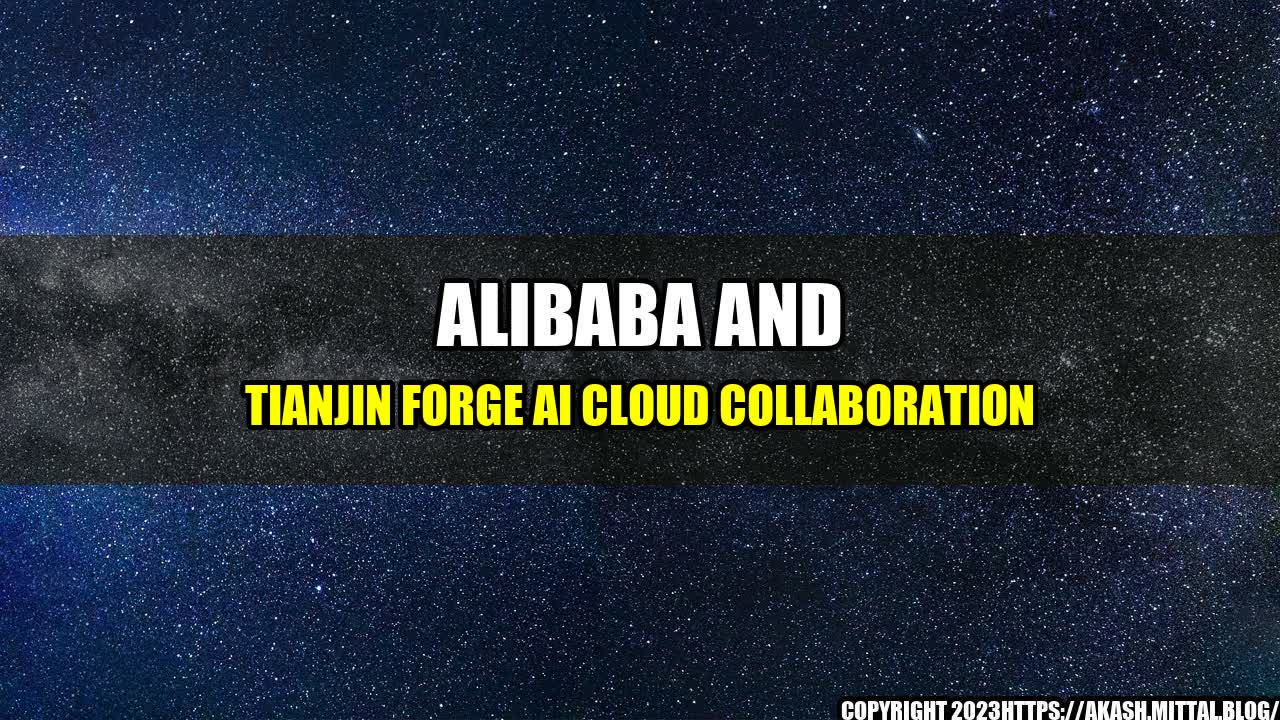Have you ever imagined a future where humans and machines work together to revolutionize industries? Well, that future is becoming a reality with the rapid advancements in AI technology. Alibaba, the Chinese e-commerce giant, has been at the forefront of AI research and development and it just forged a new pact to deepen its collaboration with Tianjin, a major city in northern China, in the AI cloud space.
This partnership aims to strengthen Tianjin's AI capabilities in areas such as healthcare, urban management, and environmental protection. By leveraging Alibaba's cloud computing and AI technologies, Tianjin hopes to improve its efficiency and competitiveness as a city.
This collaboration is driven by the growing demand for AI-powered solutions across various industries. According to a report by the International Data Corporation (IDC), the global spending on cognitive and AI systems is expected to reach $79.2 billion in 2022, up from $24.0 billion in 2018.
This collaboration between Alibaba and Tianjin is just one of many examples of how AI is transforming industries and improving people's lives. Let's take a deeper look at the significance of this partnership and what it means for the future of AI.
The Significance of Alibaba and Tianjin's AI Cloud Collaboration
Alibaba's cloud computing and AI technologies have already transformed various industries, including healthcare, finance, and logistics. By working with Tianjin, Alibaba hopes to extend its reach and impact in the northern region of China.
One area where this partnership can bring significant benefits is healthcare. With the help of AI, healthcare providers can enhance their diagnostic accuracy, personalize patient care, and streamline administrative tasks. For example, IBM's Watson Health system has been used to analyze patient data and provide physicians with personalized treatment options based on the patient's medical history.
Another area where AI can bring significant impact is urban management. By leveraging data from sensors, cameras, and other sources, city authorities can optimize traffic flow, reduce energy consumption, and enhance public safety. For example, Singapore has implemented a smart traffic management system that uses AI to predict and prevent traffic congestion.
Finally, AI can also help in environmental protection by analyzing data on air quality, water quality, and waste management. By using AI, city authorities can identify the sources of pollution and take the necessary measures to reduce its impact. For example, Dubai Municipality has deployed an AI-powered system to monitor and analyze waste management operations in the city.
The Impact of AI on Job Market
While AI has the potential to bring significant benefits to society, it also raises concerns about job displacement. According to a report by the World Economic Forum, AI and automation will displace 75 million jobs by 2022, but will also create 133 million new jobs.
One way to address this issue is to provide training and education for workers in industries affected by automation. By acquiring new skills and knowledge, workers can adapt to the changing job market and find new employment opportunities.
The Future of AI and Collaboration
As AI continues to advance, we can expect more collaborations between companies, governments, and academic institutions to emerge. These collaborations will help to accelerate the development and adoption of AI-powered solutions, which will benefit society as a whole.
At the same time, it is important to address the ethical and social implications of AI. As AI becomes more integrated into our daily lives, we must ensure that it is used for the benefit of humanity and not to cause harm or reinforce inequalities.
Conclusion
Alibaba and Tianjin's collaboration in the AI cloud space is a significant step towards a future where AI-powered solutions will revolutionize the way we live and work. By leveraging Alibaba's cloud computing and AI technologies, Tianjin can improve its efficiency and competitiveness in various industries, including healthcare, urban management, and environmental protection.
As AI continues to advance, we must also address the social and ethical implications of its use. By providing training and education for workers and ensuring that AI is used for the benefit of humanity, we can create a future where humans and machines work together to transform industries and improve people's lives.

Curated by Team Akash.Mittal.Blog
Share on Twitter Share on LinkedIn